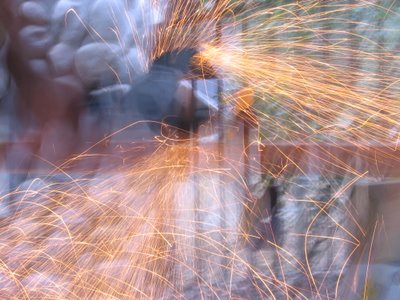 You can see what happened. Over ten hours, viewer interest (or viewer tenacity) declined steadily, with most of the casual viewers leaving after the first two programs. A number of viewers took a "sampling," catching Program 5 and then skipping ahead to the last couple of programs.
You can see what happened. Over ten hours, viewer interest (or viewer tenacity) declined steadily, with most of the casual viewers leaving after the first two programs. A number of viewers took a "sampling," catching Program 5 and then skipping ahead to the last couple of programs.I noticed a similar phenomenon on a construction forum that I frequent. A particular user had posted a series of photos - links that had to be opened in new windows - documenting a finish carpentry project. Number of views was indicated next to the link...
 The graphs are astonishingly similar. Steeper rates at first, followed by a more gradual decline, with that characteristic "hump" at the end.
The graphs are astonishingly similar. Steeper rates at first, followed by a more gradual decline, with that characteristic "hump" at the end.I imagine (with a shudder) that there are many people who read books this way. There is these days too much emphasis on starts and stops; we like to emphasize the two ends. Remove the middleman, fine, but don't remove the middle. For me, things are done properly when they are done like races: start to finish.






















































